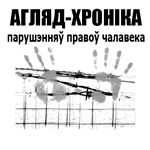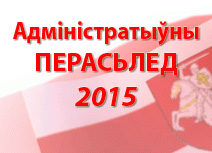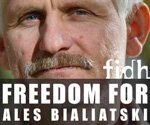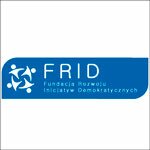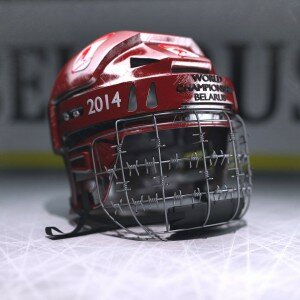
What campaigns were held during the Ice Hockey World Championship to support political prisoners? Is civil society in Belarus doing its best to support political prisoners? We spoke with Yulia Liashkevich, an expert in advertising, who initiated several bright ideas in favor of Belarusian society, to learn about the hashtag campaign, the prison bookmaking, and wondered why the opposition failed to use the opportunity to tell the foreigners about the Belarusian reality.
Hockey hashtags as an alternative to printed leaflets
The idea of using hashtags appeared after much reflection and searching for alternative ways of sharing information. I thought why not use hashtags that would be used at the World Champ (#minsk2014, #worldcup2014, #icehockey2014, #humanrights, #politicalprisoners, #fairplay, etc.) in order to spread unbiased information. The same idea worked well at the Olympics in Sochi, where a request with a hashtag #sochi2014 redirected to an article on the situation of homosexuals in Russia.
Initially, the idea of hockey hashtags was based on reposting several articles in English, which in different aspects would tell what was happening in Belarus.
Tell a story
We did a campaign, imagining ourselves in the place of a foreign visitor, who knows nothing about Belarus, but has come here for hockey and now he can see what will probably remain in his mind.
We wanted to visualize the information so that it could touch people. Not to post dry statements of politicians, but to tell a story. For example, a foreign fan asks: what’s going on here in Belarus? And in response he hears: it seems clean, but before your arrival 27 young people were arrested, including a person sentenced to 25 days, whose wife will soon have a baby. Everyone will understand such a story!
A little later, a number of posters of political prisoners appeared, because the hashtag symbol # looks like prison bars. And also there was a series of posters about preventive detentions on the eve of the championship.
Implementation
It is worth noting that this is a purely volunteer-based project. When the idea was shared in the Internet, a designer nicknamed Svaboda (“Freedom”) immediately responded and created all the posters. Also the campaign was joined by Nikolai Khalezin, who invited Aleh Minich, a legendary man who made cartoons about Lukashenks. Mr. Minich created a high-quality image of a helmet. Everyone realized that together they were doing useful work.
The campaign’s target audience
The project was conceived for Belarusians, as we have a shortage of information, and for Western hockey fans, so that they got an idea of the situation in Belarus.
Strong motivation to do this project were the relatives of political prisoners. On the background of the events in Ukraine, which captured everyone, most people forgot about the political prisoners, and their relatives noticed it.
Feedback and results
I can honestly say that the campaign failed, and, by and large, the efforts did not pay off.
The essence of the campaign was to form a core team of 100 people who would copy important information, posters, adding hashtags. Then we would first top the Belarusian Tweeter, Instagram, and then, at least for one day, would be number one in Europe. And it would draw attention to the problem of political prisoners and preventive detentions! It would give results, we would realize that we could do something.
Our problem is that people do not do anything. For example, parties did not support the campaign. I was very surprised. 27 people were already arrested, people started changing their Facebook avatars to the helmet, and set flags with the names of the detainees as their wallpapers, the media waited for press-releases and party leaders posted their unreadable statements and talked about Eurovision, not seeing the connection between the championship and the preventive arrests.
The campaign with posters and hashtags showed that it is not about the opposition’s stories about lack of products, but about the fact that we are not willing to work, are not ready to use the latest means of disseminating information. Unfortunately, the civil society of Belarus still uses the Internet at the primitive level: printed a leaflet, posted on the wall.
So, in many ways this Championship has worked for the dictator, but there are many aspects where it was working against him, which, unfortunately, no one wanted to take advantage of.
To be continued with a talk with Yulia Liashkevich about the prison bookmaking system Tatalitaryzatar, providing opportunities to predict the future detentions of civic activists.


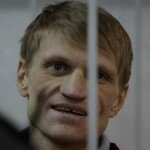



 Belarusian
Belarusian English
English polski
polski


